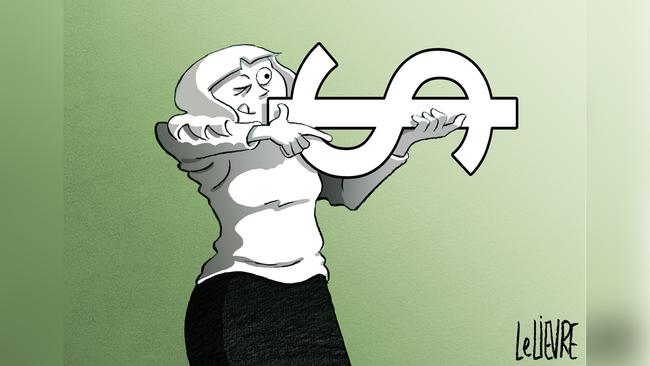Cancel culture: a beginner’s guide to joining woke war on everything

It was a sobering upbraiding by a more literary friend and one that got me thinking of the difference between conscious consumption and (trigger warning for readers) cancel culture. Is it simply that I don’t have enough friends on social media to make me an effective canceller?
I have a hit list. And it’s getting longer. Indeed, I avoid books by authors who have been unpleasant, vain or rude in media reports or in person. They can be feisty (love Lionel Shriver) but the posturing of some acclaimed novelists (thinking of you, Paul Auster, and you, Philip Roth) is hard to reward.
Ditto for unpleasant movie stars. It’s hard to watch a movie when you’re remembering their stupid or cruel comments, especially if they are about ex-wives or God. That might mean that the actor isn’t very good at acting if I’m remembering his wacko ideas throughout the movie or it might mean I’ve a long memory.
There are countries on the hit list. Mostly they are shoddy at democracy, treat women poorly, trash the environment or rip off their citizens. Fortunately, most of these countries don’t have good food or wine so they’re not that tempting to visit.
There are a few restaurants with crabby chefs on the list; one cafe, whose owner was curt to me on an early morning visit, the local car wash guy whose anti-social activities have made it into court and I did own a VW but when the company was exposed for false claims I switched to an Asian make. And, no, it wasn’t a Chinese car because I avoid products from there since the country decided to be mean to Australia and, when I fail, which is often, I feel guilty about it.
It’s fun having a hit list. There is a sense of power in depriving the bad guys of your attention and your custom, even if it only costs them $4.20 and they don’t know about the indignation.
It’s also a method of honing your values, reminding yourself of what is acceptable behaviour and what isn’t.
But is it beginning to sound a bit moralistic? Am I about to take to Twitter to destroy a business, a career or a barista?
To answer my friend, there is a difference between not wanting to support disagreeable people and cancel culture. Firstly, it’s a personal choice, not a public declaration (although I may have crossed the line here).
Other customers should feel free to support the terrible people.
When you make your own hit list, there is no bandwagon, no public pressure, no virtue signalling, just a secret curse and a bit of smugness.
Hit lists are also ancient. Ever since one of my ancestors walked into a margaidh and thought, should I buy a loaf from the smiley baker or the baker who kicks my dog, we’ve been cancelling the bad guys.
But the hit list is not just about revenge. It’s about the vibe.
A cranky cook won’t make his staff happy to see you and won’t have cooked a dish with care.
A country run by a corrupt regime doesn’t make for happy citizens, good social systems or trustworthy institutions.
A car that comes with dodgy claims will make you feel nervous driving it.
And an author who is unpleasant will imbue his work a meanness of spirit and, sometimes, a dislike of the reader. The feeling is mutual.
Macken.deirdre@gmail.com



A friend recommended a new book the other day. I can’t read that, I replied, I don’t like the author. It’s a novel, she said pushing a copy of the book my way, you don’t have to like the author. She paused. Unless you’re into cancel culture?